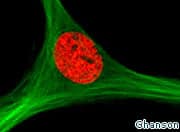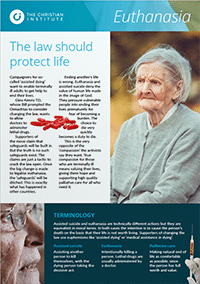Scientists have discovered a “remarkably efficient” way to manufacture stem cells which closely resemble their embryonic equivalent.
Watch a CBN report on this development
Embryonic stem cell (ESC) research remains highly controversial because it involves the destruction of human embryos, and after more than a decade of research it is yet to yield any successful treatments.
There are already over 100 treatments using adult stem cells which do not involve the destruction of human embryos.
Welcomed
But researchers at the Harvard Stem Cell Institute have found a new, safer and more ethical way to reprogram ordinary skin cells into stem cells, known as induced pluripotent stem (iPS) cells, which appear to be almost indistinguishable from embryonic stem cells.
The iPS cells can then be used to manufacture specific types of cells.
This new development, which was revealed in a stem cell journal, has been welcomed by the scientific community.
Exciting
Derrick J. Rossi, who led the research, said: “This is going to be very exciting to the research community”.
“We now have an experimental paradigm for generating patient-specific cells highly efficiently and safely and also taking those cells to clinically useful cell types.”
Robert Lanza, a stem cell researcher at biotechnology company Advanced Cell Technology, said: “All I can say is ‘wow’ – this is a game changer”.
Solve
He added: “It would solve some of the most important problems in the field.”
Dr David Stevens, CEO of the US-based Christian Medical Association, said that embryonic stem cell research was “obsolete”.
And Richard M. Doerflinger, of the US Conference of Catholic Bishops, said: “With each new study it becomes more and more implausible to claim that scientists must rely on destruction of human embryos to achieve rapid progress in regenerative medicine”.
Advance
While opponents acknowledge the advance they remain adamant that research into embryonic stem cells must continue.
Francis S. Collins, director of the National Institutes of Health, said: “The new report provides a substantial advance”.
He added: “But this research in no way reduces the importance of comparing the resulting iPS cells to human embryonic stem cells.
Research
“Previous research has shown that iPS cells retain some memory of their tissue of origin, which may have important implications for their use in therapeutics.
“To explore these important potential differences, iPS research must continue to be conducted side by side with human embryonic cell research.”
Scientists have previously manufactured iPS stem cells from adult cells but these were marred by safety concerns.
Embryonic
Last month a US appeals court overturned a temporary ban on the use of taxpayers’ money to fund contentious research into embryonic stem cells.
The Obama administration caused a storm of controversy last year by expanding the use of federal funds for research into new lines of embryonic stem cells.
Earlier this year District Court Judge Royce Lamberth ruled that the research violated federal law, and imposed a temporary ban on the use of federal money for the research.
Emergency
But the Justice Department challenged the decision, and last month a three-judge panel lifted the ban saying that the court needed more time to consider the case.
The court said: “The purpose of this administrative stay is to give the court sufficient opportunity to consider the merits of the emergency motion for stay and should not be construed in any way as a ruling on the merits of that motion”.
The decision was met with dismay by opponents.


